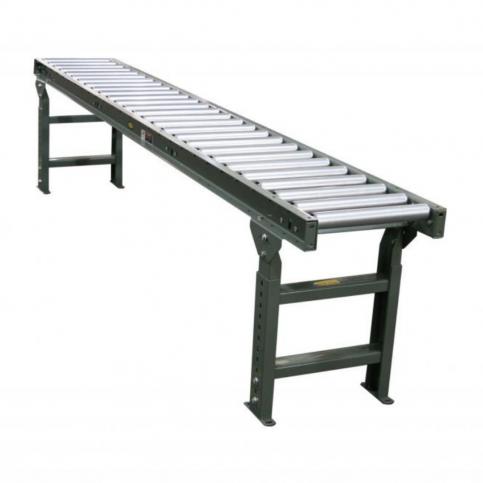As its name suggests, a case conveyor is primarily used to move cases of different products from one location in a facility to another. It is the most economical way to transport high volumes of cases, and as such are frequently sought out by larger facilities and warehouses. This type of conveyor comes in all sizes, shapes, and functions, and businesses can configure their own system to best suit their needs.
In today’s blog, we provide an informative overview of case conveyor systems:
Benefits of Case Conveyors
Using a conveyor system to manage the flow of your cases brings many benefits, including reducing forklift traffic and manual labour. Furthermore, additional technological features can be integrated into your case conveyor system to make the entire process more automated and thus, less prone to human errors. Examples of this include automatic sorting and merging, which is a crucial operation for larger warehouses. Given their flexibility, case conveyors can be used for all distribution channels as well as for process buffers. They are also applicable to be used in conjunction with other conveyor technologies in processing or shipping applications.
Different Types of Case Conveyors
A case conveyor can come in any type of configuration that best suits your needs. Norpak Handling has a wide range of conveyor models available to suit your case conveying system requirements. Your case conveyor system can be further equipped with different kinds of beds, such as roller, skatewheel, belt, chain, or wire mesh.
Generally, one of the simplest and most common case conveyor solution consists of gravity conveyors. Gravity solutions are low cost and efficient, featuring lightweight constructions. Another option in the realm of lighter duty applications is portable conveyors, which can be folded into compact configurations for storage.
If your specific applications include the process of loading and unloading cases from containers and trailers, you should opt for an extendable solution. Extendable conveyors can be easily extended and raised or lowered.
Certain Specifications to Know About
Finally, when specifying a case conveyor, take note of the following factors. The right solution for you should cover all these bases, and the experts at Norpak Handling will be able to walk you through each step.
- Load capacity
- Accumulation logic
- Conveyor speed
- Case feet per minute (CFPM)
- Throughput
- Width
- Frame configuration
- Drive location
Norpak has spent decades working with a wide variety of conveyor manufacturers to provide our clients with the best range of choices. This way, we guarantee that you will be able to find the right solution for your business. Contact us today for more information on our products and services.










